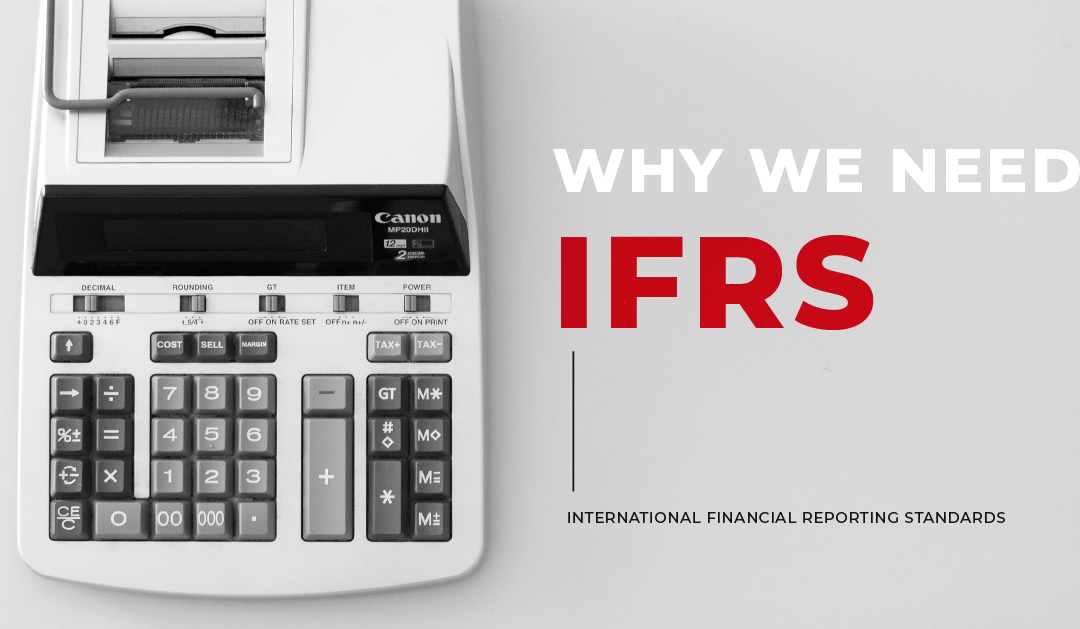Standardised accounting standards – IFRS
The Need for IFRS in global reporting
In recent decades, the way we do business and the markets we engage with are changing and expanding. Where we once traded with our local communities, we are now able to transact with that person halfway across the world. With the world entering a generation of interconnectedness the need to keep the way we account and report on these transactions and events comparable, transparent, reliable, and relevant is even more important. As more than a third of transactions are cross-border transactions.
As companies began expanding into new regions and new countries the comparability of financial information become more important with companies having to report the same information in more ways to satisfy the information need of users of financial statements. The impact of differing transaction treatment and the way it is reported meant that transaction and/or expansion was more costly and took longer.
Therefore, the global accounting community has set an accounting standard that aims to standardise the way these transactions are recorded and reported. These have been created into the International Financial Reporting Standard (IFRS). This was adopted by countries to avoid the distortions from varying policies being applied and to make financial statements more comparable, improve international trade, and enable globalisation of businesses.
The benefits of standardised accounting standards in reporting:
- Ensures the same treatment to transactions regardless of jurisdiction or location
- Ensures comparability either internally for decision making or externally for investors
- Improved the quality of information due to rules and guidelines in applying standardised accounting standards
- Reduces the information gap between investors and those charged with governance.
- Reduced reporting costs for business as all global branches can be reported in one reporting language.
- Provides more reliable and relevant information to the users of the Financial Statements.
- Reduces time, effort, and expense of preparing multiple reports per jurisdiction
- It makes it easier to monitor and control foreign subsidiaries
- Makes it easier to do business internationally
- Creates a single accounting language that would ensure financial statements are more understandable.
- Accounting Standards are regularly updated to enhance the quality of financial information
- There is an active community to assist in the implementation
- Assists in the formation of fiscal policy and procedure in standard reporting across multiple entities and jurisdictions in a group of companies.
The IFRS Foundation has been leading this project of standardising the world’s accounting standard with being adopted in 140 jurisdictions. In South Africa, the International Financial Reporting Standards of “IFRS” have been adopted through legislation.
There are some challenges in implementing the accounting standard, some of these are:
- Complex to implement some standards that would require professional or expert assistance
- An additional cost to ensure your Financial Statements are compliant
- It can create accounting distortions from the complex application of some standards that can be used for covering up fraudulent activities or manipulating financial position.
- It requires professional assistance in the application
- It requires professional reviews and monitoring.
- Increases the work of accountants and professional practices in ensuring compliance
- A full range of accounting standards can become cumbersome to Small and Medium-Sized Entities.
The IFRS helps eliminate the reconciliation of accounting records from varying sources to ensure there is a unified comparable image of financial data available to users of financial statements to make better decisions. The standardised accounting standards ensure that the hurdles for doing business internationally are reduced and assist in global expansions.

